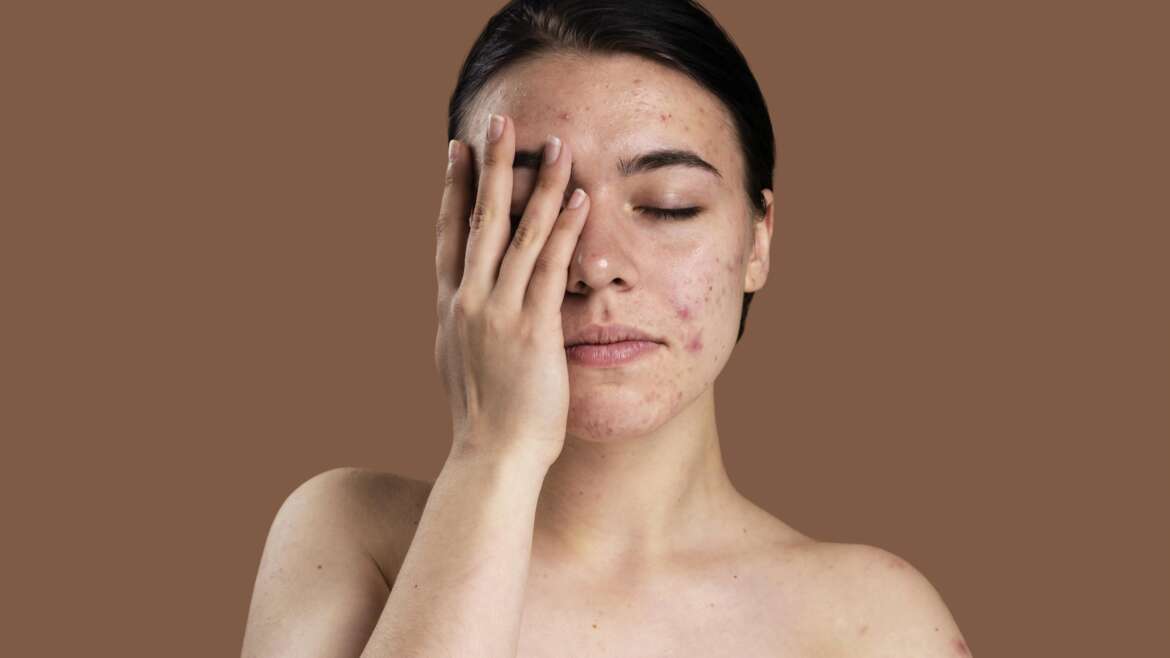Psora” a skin condition was first described around 100 BC. Psoriasis is a long-standing skin disease which can also affect the joints and have associated internal complications. Recently the incidence of psoriasis has increased due to dietary and lifestyle habits. We at Renewderm offer the best psoriasis treatment in Mumbai
Multiple factors are responsible for psoriasis and genetic predisposition stands on the top of the list. About 1/3 of people who have psoriasis also have a family member afflicted with the disease. The basic default lies in overstimulation of the skin cells; produced rather quickly these immature cells stack up and result in a thick, red skin which is scaly and irritable (psoriasis plaque). Normal skin shows mature cells which multiply once in 30 days, but in a psoriatic plaque, the irritated cells multiply rapidly within 3-5 days. This overstimulation of the skin is linked to increased activity of the immune system which produces a protein called TNF- alpha usually triggered in response to an infection or foreign protein.
The red scaly psoriatic plaques may remain limited to a particular part of the skin in some people or have a generalised disease covering a large surface area of the body. On the skin, bony points of hands, feet, and buttocks are most common but folds of the body, palms, soles, scalp, nails, face and even tongue may be involved by psoriasis.
By severity and extent psoriasis may be mild, moderate or severe.
A person suffering from psoriasis may not have an active disease all the time and there are often phases of symptom-free intervals where the disease is said to be in “remission”. In certain situations, psoriasis may remit on its own, but the disease-free interval is unpredictable in duration and recurrence is often a rule. There may be persons who are in remission from psoriasis for years whereas others who do not remit for years!
Triggers For Psoriasis
- Infections
- Stress
- Cold climate
- Injury/trauma
- Certain medications like antimalarials and blood pressure lowering drugs
- Alcoholism
- Cigarette smoking
Left untreated active psoriasis can worsen in severity by grade and rarely lead to potentially severe forms like where almost the entire skin is affected with red scaly itchy surface or tender pus-filled blisters with gross swelling. If large areas of skin get involved this is a potentially life-threatening variety of psoriasis and warrants immediate hospitalization.
Psoriasis can affect not only the skin surface but in 30% of cases joint affliction can coexist making routine day-to-day tasks painful and difficult for a person. Rarely, if left untreated and active for a prolonged period of time, it can lead to crippling immobility for a person. Psoriatic patients have a significantly higher prevalence of other co-morbid diseases too e.g.
- Depression
- Diabetes
- High blood pressure
- Heart diseases
These comorbidities further limit the response to medical treatments and pose a challenge for giving certain medications to control psoriasis
Men, as well as women, have an equal tendency to be affected by psoriasis. The disease can resurface between 15 to 40 years of age but psoriasis among children and middle age is not uncommon either. Early onset psoriasis is more common in first-degree relatives indicating a genetic association and it follows an irregular course and shows a strong tendency to cover the whole body.
Psoriasis is easy to diagnose by a dermatologist and when in doubt a simple skin biopsy procedure can help one to confirm if you are suffering from this condition. Clinical evaluation and Imaging studies are of great value in detecting psoriatic joint involvement.
Dealing with psoriasis is the journey with oneself, the world, the family, the relatives and the health care physician for an affected person. It has a deep psychological impact on the person’s mental, physical, professional, social and emotional capabilities.
A large number of social factors hound a psoriatic individual and often frustration, embarrassment, low self-esteem, social stigma teemed with prolonged medical therapies and unpredictable remission often tempt a person to try over-the-counter and quack remedies which claim a cure.
Facts About Psoriasis
- Genetic disease with an immune system malfunction.
- Psoriasis is not contagious and cannot spread by touch or intimate contact, sharing of utensils or living under one roof.
- It is not an infection.
- No food is responsible for causing psoriasis.
- There is no cure for psoriasis and often long-term control can be obtained in many patients.
- Best psoriasis treatment in Mumbai is available to bring remission in psoriasis and when properly selected, in most cases the lesions clear up in a couple of months.
- Maintenance therapy is equally important.
We offer the best doctors for psoriasis in Mumbai and have more therapeutic options available than ever before to control psoriasis.
The treatment goals include:
- Patient information and education
- Achieve control and optimal clearance
- Maintain remission to prevent reactivation
- Prevent complications
Dos & Don’ts In Psoriasis
- Keep skin well moisturised throughout the day, since a cooler climate is detrimental to psoriasis, so are air conditioners!
- Use soaps that are moisturizing and not drying. Heavy moisturizing post bath will help to reduce scaling.
- Avoid hot water baths, mild warm baths are sufficient.
- Scalp psoriasis treatment in Mumbai includes medicated shampoos containing tar, cortisone, and salicylic acid along with antifungal agents that help to loosen and wash out the scales.
- Scratching should be avoided as it may introduce infection and if severe can be relieved by antihistamines. Scratching can trigger new psoriasis plaques too.
- Psoriasis affected nails are thick, pitted and discoloured. They readily crumble too. Avoid heavy detergent exposure or gardening by wearing gloves. Keep nails short, groomed and clean. Manicure and pedicure should be avoided by persons with psoriasis as a propensity for bacterial and fungal infections are high in nails or nail folds after such procedures.
- Hands and feet should be checked and any cuts should be treated. Often adequate moisturizing does the job and for thick scaly skin, ointments are preferred over creams. A way to make the creams work better in thick scaly psoriasis is to cover it with plastic cling films for 20 mins after application. This softens and loosens the dead cells and allows better penetration of the applied creams/ointments, giving excellent symptomatic relief.
- Refrain from self-medication.
- Abstain from alcohol and smoking.
- Follow a healthy diet pattern and keep a check on weight
- Regular exercise keeps cardiac risks down and helps arthritis.
Psoriasis Treatment in Mumbai
The psoriasis treatment in Mumbai is chosen in accordance with the severity of the disease. If one has mild psoriasis, it can be managed by topical therapies and moisturizing applications alone. Moderate psoriasis may improve with topical therapies or may need additional phototherapy with or without oral medications. Phototherapy is conducted by using light sources (UVA and UVB rays). Severe psoriasis must be treated with certain disease-modifying drugs and newer biologics drugs. Oral medications work by reducing the accelerated skin multiplication.
Research supports continued reliance on a fixed dose, rotational newer therapies for mild to moderate and drugs like methotrexate, Acetretin, cyclosporine and biologics for moderate, severe and life-threatening types of psoriasis. The advent of biologics has revolutionized the treatment of psoriasis. And newer biological drugs work by targeting specifically the TNF alpha cytokine responsible for initiating the disease process there are a number of biologics available for treating psoriasis and psoriatic arthritis. Some of them are approved by FDA for use in psoriasis and psoriatic arthritis.
No one treatment works for everyone and there is no way of predicting which treatment will work or which will not. Patient lifestyle management is as important as a therapeutic intervention in psoriasis. Thus, various factors governing the treatment of choice are crucial and play an important role in choosing these treatments. Professional dermatology opinions and services should be sought for addressing all grades of psoriasis. With proper education, information and medical care the worst psoriasis can be overpowered and life can be lived to the fullest.
FAQ’s About Psoriasis
What is the best doctor to see for psoriasis?
You can consult experienced Dermatologists at Renewderm. Qualified doctors in skin specialisation work together to ensure quality care and successful recovery.
Can doctors cure psoriasis?
Your doctor will probably start with a mild treatment, such as topical creams applied to the skin, and then move on to stronger treatments if necessary. A wide range of treatments are available for psoriasis, but identifying the most effective one can be difficult.
Can psoriasis be cured permanently?
Treating psoriasis can keep it under control, helping you avoid serious flares and preventing psoriasis from becoming more severe. Treating psoriasis can help improve symptoms as well as lower the risk of developing other health conditions such as psoriatic arthritis, heart disease, obesity, diabetes and depression.
Does psoriasis shorten your life?
Psoriasis is not generally considered life-threatening, except in cases of erythrodermic psoriasis. This rare type of psoriasis can affect the entire body.
Is Psoriasis a serious disease?
Psoriasis is a common, long-term (chronic) disease with no cure. It can be painful, interfere with sleep and make it hard to concentrate. The condition tends to go through cycles, flaring for a few weeks or months, and then subsiding for a while. Common triggers in people with a genetic predisposition to psoriasis include infections, cuts or burns, and certain medications. Treatments are available to help you manage symptoms. And you can try lifestyle habits and coping strategies to help you live better with psoriasis.
What is the fastest treatment for psoriasis?
Topical therapy, Corticosteroids. These drugs are the most frequently prescribed medications for treating mild to moderate psoriasis. They are available as oils, ointments, creams, lotions, gels, foams, sprays and shampoos
What is the main cause of psoriasis?
Psoriasis occurs when skin cells are replaced more quickly than usual. It’s not known exactly why this happens, but research suggests it’s caused by a problem with the immune system.
How do you stop psoriasis from spreading?
A wide range of prescription medications can help with psoriasis. Topical steroid creams that are stronger than those available over the counter may help.
What’s the latest treatment for psoriasis?
The latest treatment for psoriasis include biologics and biosimilar drugs both oral and injectable that give long-term remission and control of psoriasis without requiring frequent monitoring of the blood. These drugs are chosen for treatment, taking into consideration body surface area of involvement, the severity of disease, involvement of palms and soles and patient-related factors.

